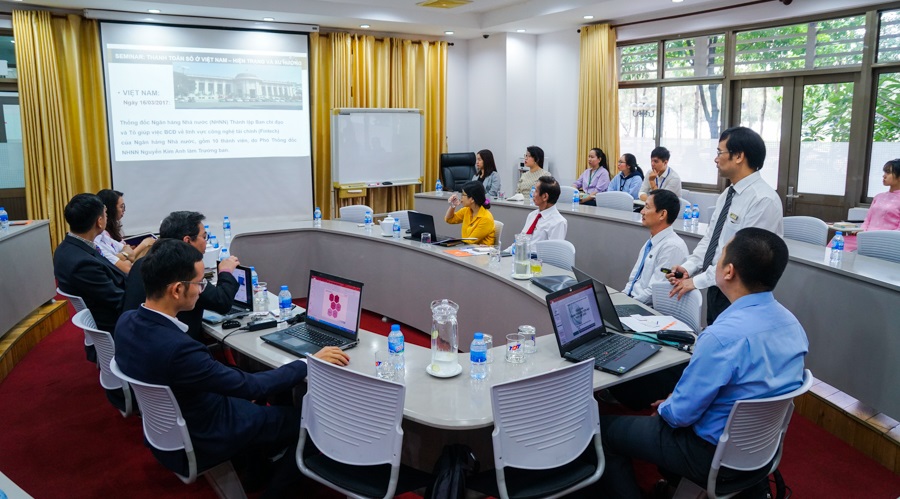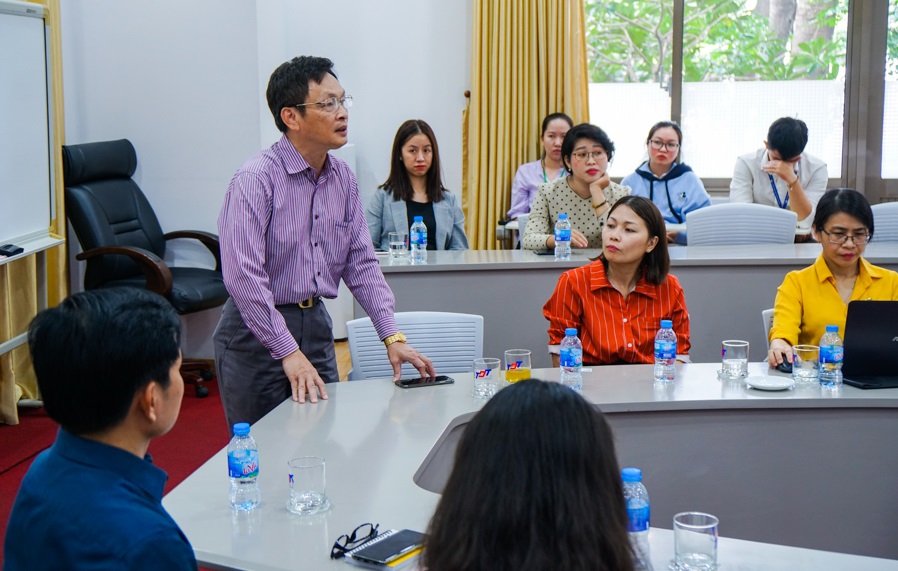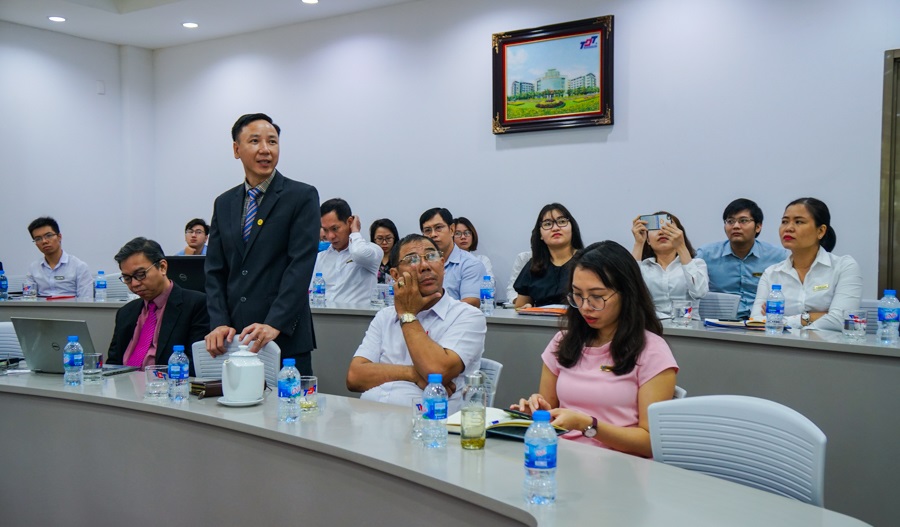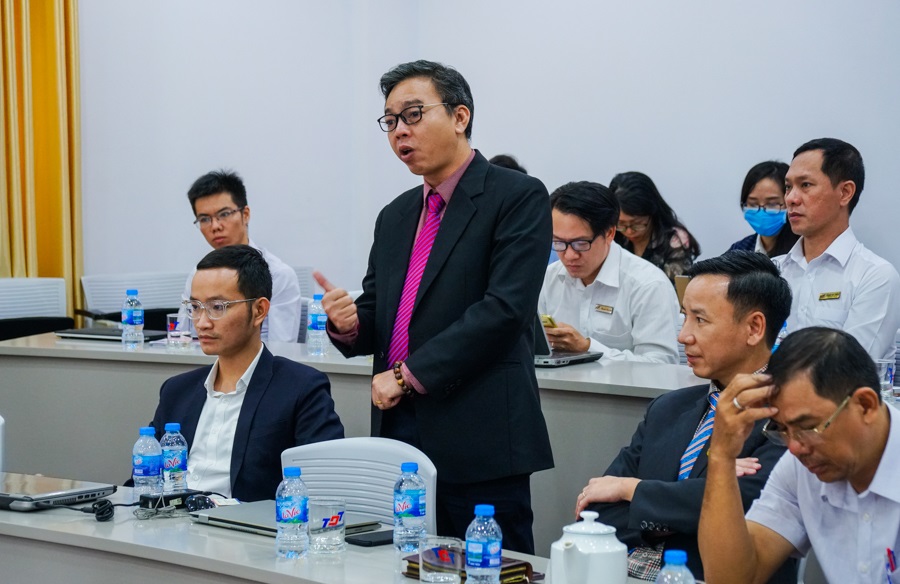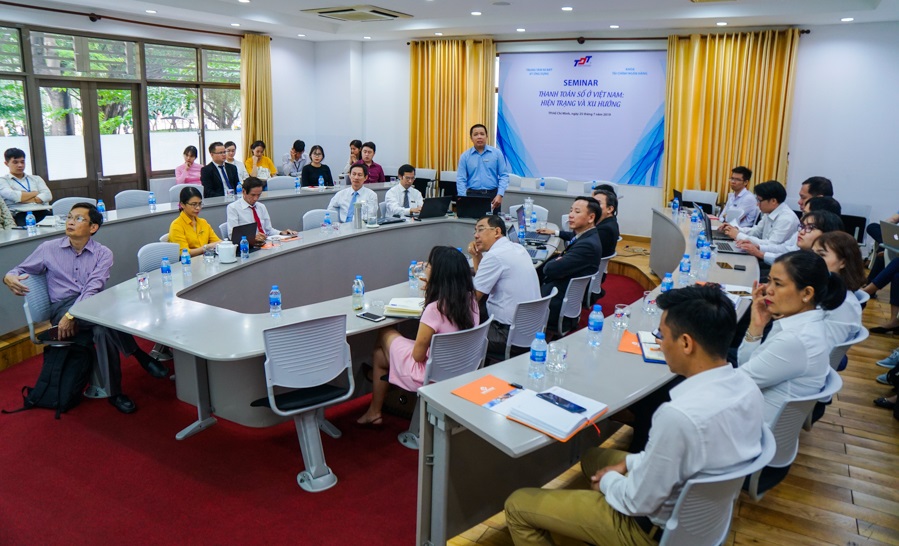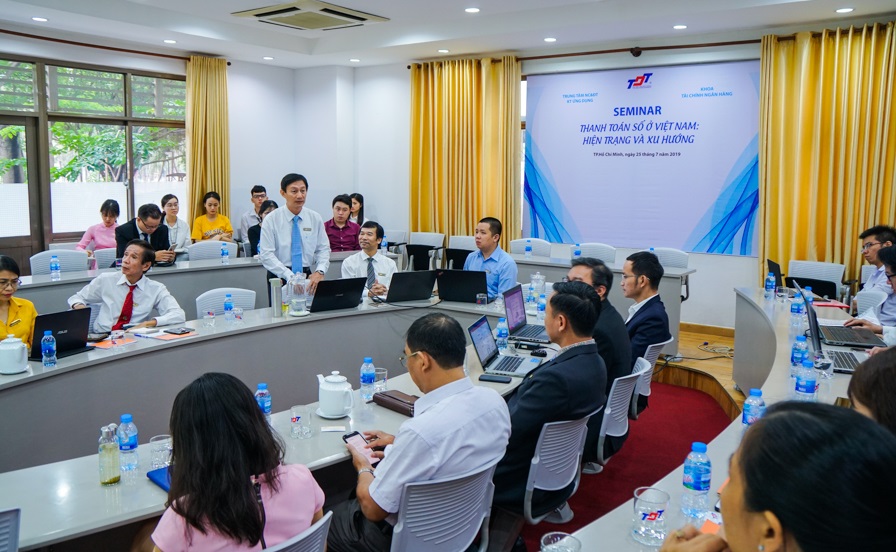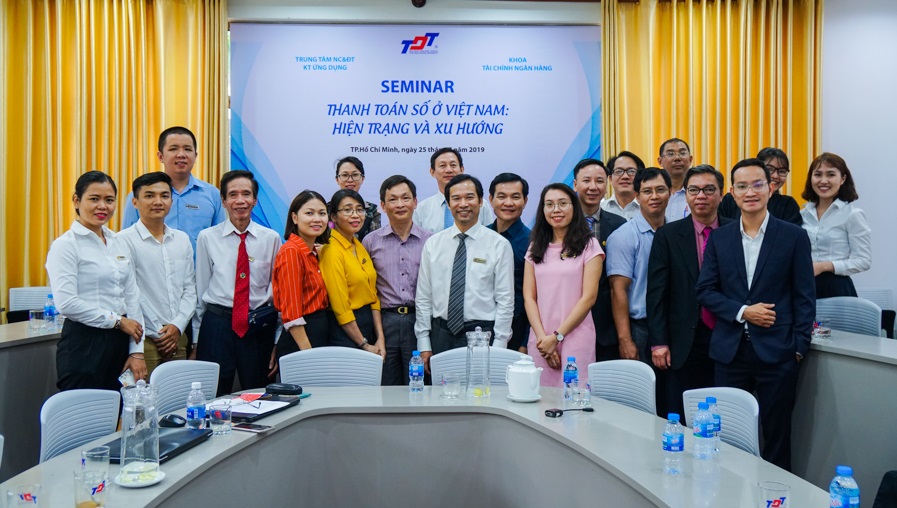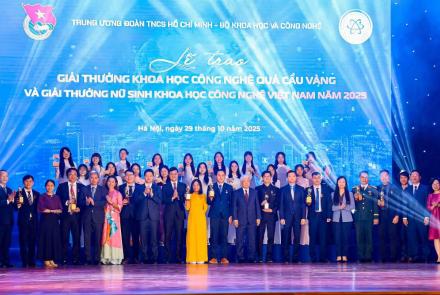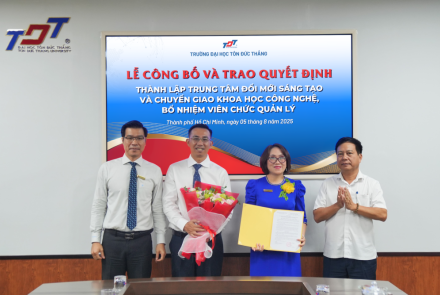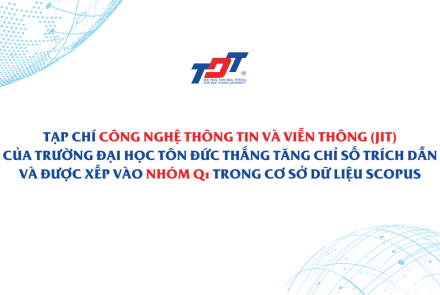Digital payment in Vietnam, current status and trends
On July 25, 2019, Center for Economic Training & Application Research (CETAR) of Ton Duc Thang University (TDTU) cooperated with the Faculty of Finance and Banking to organize the Seminar on "Digital payment in Vietnam, current status and trends”.
The participants of the seminar were experts and researchers from associations, banks, securities companies and enterprises in the financial sector such as Vietnam Internet Association, Lien Viet Post Commercial Joint Stock Bank (LienvietPostbank), Commercial Joint Stock Bank Pvcombank, Tan Viet Securities Company, Phu Hung Securities Company, Long Phu People's Credit Fund, Tai Viet Joint Stock Company (VIETSTOCK), scientists and lecturers of universities in Ho Chi Minh City (HCMC) such as Ho Chi Minh City Open University, Industrial University of Ho Chi Minh City and TDTU.
Speaking at the Seminar, Dr. Nghiem Quy Hao, Director of CETAR said: “Vietnam currently has 140 mobile subscribers per 100 people, nearly 60 million 3G, 4G and 99% of districts nationwide having 4G coverage. The number of broadband mobile subscribers using smartphones is expected to continue increasing to 80 million by 2020. This is an ideal condition to promote digital payment and other financial and e-commerce services; completely change the habit of using cash in the public”. Digital payments will quickly explode and become popular in Vietnam as it was with mobile phones over 10 years ago.
Non-cash payment methods, electronic payment, mobile payment (collectively referred to as digital payment) have been and are getting popular as well as becoming an inevitable trend in countries around the world. In 2018, Vietnam's mobile payment achieved more than 160% growth in value compared to 2017; and Vietnam was considered to be the best growth market in the ASEAN region. Up to now, there have been 41 banks in Vietnam providing mobile payment services (mobile banking, mobile payment). By the end of June 2019, Vietnam has had 30 non-bank organizations licensed to provide payment intermediary services with typical applications such as: Moca, MoMo of M_Service and QR Pay of VNPAY.
According to the forecast, the value of digital payment transactions in the world will increase from 780 billion USD in 2017 to 1,150 billion USD in 2020 and reach 4,574 billion USD in 2023. In which, Asia - Pacific will be the zone gaining a high growth rate and high revenue (expected to reach 31.4%). As for Southeast Asia market, according to Euromonitor's forecast, the total value of mobile payment by 2021 will have reached about 32 billion USD, 10 times higher than in 2013.
Dr. Phung Quang Hung, Department of Finance and Banking TDTU, gave a summary: "Non-cash transactions have a linear relationship with the awareness index of corruption. The higher the number of non-cash transactions can reach, the higher the awareness index of corruption will get and the lower the rate of corruption will be. The digital payment cannot guarantee a reduction in corruption in general, but it is a factor having a positive impact on reducing the corruption situation of a country”.
Besides the advantages and convenience, mobile payment also creates certain challenges related to the legal framework, safety in transactions, information security issues, cross-border transactions, high technology crime and national sovereignty. Sharing at the workshop, experts and scientists also expressed and exchanged issues raising for Government Agency in the management and enforcement of monetary policies when intermediary payment services explodes; especially the issue of information security for users in the digital space and economy.
Issues regarding the integration of user identity, the impact and influence of Fintech (financial technology) on banking and financial sector, the effect of non-cash payment, jobs in the finance and banking industry when mobile payment services are on the throne, etc. are also raised by the Internet Association, enterprises and university lecturers. President of Internet Association Vu Hoang Lien suggested TDTU conduct research projects on community payment to help digital payment method in Vietnam develop better.
Some photos at the seminar:
